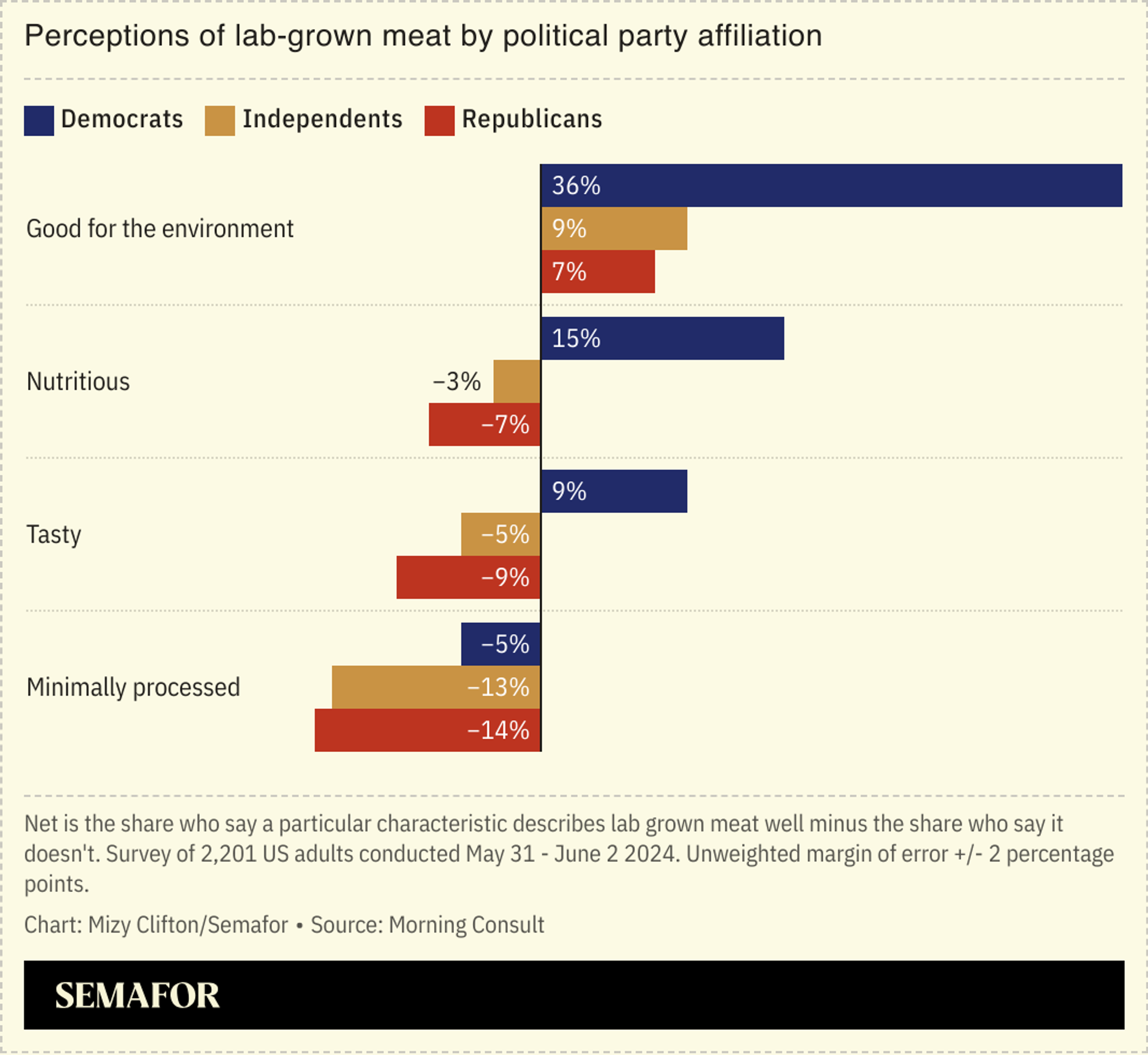The News
The UK has become the first European country to approve sales of lab-grown meat after regulators gave the green light to pet food start-up Meatly to produce cultivated chicken from animal cells.
Meatly’s CEO and co-founder Owen Sensor said the decision signaled the UK’s intention to become a market leader, and that Brexit had allowed the country to bypass “longer” and “more complex” EU regulatory processes to make it so.
Photo by Ivan Radic/Flickr. CC BY 2.0.
SIGNALS
Costs, consumer concerns hold back lab-grown meat sales
Meatly says it plans to scale up production within the next three years, but until costs drop, cultivated pet food will remain a “premium product” rather than a viable replacement for typical chow, Wired reported. In the US, high-end restaurants stopped serving cultivated chicken due to limited availability, and there’s likely to be a “decade-long lag” before the industry can compete with conventional meat, a columnist argued for FoodPrint, an environmental foundation-backed publication. Consumers aren’t necessarily on board, either: Even in Singapore, where lab-grown chicken is on sale, 36% of respondents to a 2023 survey expressed safety concerns, according to trade publication Food Manufacture.
Attitudes to lab-grown meat split by political leanings

The US is one of the few countries that have approved lab-grown meat for human consumption, but a “culture war” may be brewing, The Economist noted: Florida’s governor Ron DeSantis banned its sale in the state in May, citing a conspiracy that global elites want to “push a diet of petri-dish meat” and that it was anti-American. Lawmakers in other countries have echoed similar ideas about lab-grown meat as an assault on national identity: An Italian lawmaker told Politico in 2023 that banning lab-grown meat was important to “defending work, environment, culture, and identity.” This messaging may shape public perceptions along partisan lines: Democrats are more likely than Republicans to have a net-positive opinion on cultivated meat, food and climate outlet Green Queen reported.

